- Home
- Perry Rhodan
Project Earthsave Page 5
Project Earthsave Read online
Page 5
The Titan made a vertical landing at Honur's graveyard of ships—a ghastly memorial consisting of miles of derelict space vessels which had also disobeyed the ban and whose crews had long since fallen prey to the fatal hyper-euphoria induced by nerve poison. But for Perry Rhodan and his men, Honur was no longer a 'forbidden planet'. In the meantime he had obtained the antidote. The Aras of Aralon were forced to surrender it and until the day of its final demise this race would now never forget its first encounter with the beings from Earth.
Perry Rhodan looked pensively at his friend. "Bell, have you ever come to realize that—for many intelligences in the Milky Way—my name carries the same connotation that the word Devil does on Earth?"
Bell looked up in surprise. "So what?" he asked, at first casually—but then he sobered. "That is and will remain the other side of the coin. You'll never be able to change it. It's something you'll have to come to terms with. By not thinking about some things, the worst can be overcome."
Even Perry Rhodan was only human, after all. In this moment of reflection he felt the weight of responsibility resting on his shoulders like an insupportable burden. He had somehow been chosen as the one who must protect Earth in relationship to the universe. He had already achieved the first giant step beyond the solar system and—outward to the stars. Now he feared the next giant step because he could sense the uncertain footing of his power.
The Earth had come to be threatened by the Galactic Traders. The Aras, who were descendants of the Springers, were using the power of their medical monopoly to force the others into attacking the Earth. That the attack would occur, Perry Rhodan was convinced. For this reason he had sent Col. Freyt back to Terra in the Ganymede, in order to expedite all preparations necessary for a global defense—and the Ganymede was the only ship other than the Titan that was equipped with a teletransmitter. There were only these two and neither vessel was reproducible. What were a pair of tele-transmitters against 2 or 3 thousand Springer space battleships?
With an instinctive clarity, Perry Rhodan recognized the limits of his power; he knew that the Earth was lost unless he could find a way of thwarting the planned attack. For the moment he saw no possibility of averting the disaster.
Bell studied him closely as Perry spoke aloud, seemingly to himself. "I hope we're not depending too much on Talamon's help. For days now I haven't been able to shake off a disastrous feeling that we're running wide-eyed into a situation that can blow up in our faces!"
Com Control switched a dispatch through to Rhodan's cabin: "Patriarch Talamon has taken off with his entire fleet to the Gonom System. The rendezvous of the Springers and Mounders will take place in 3 Arkon days on Laros, the 18th moon of the single planet Gom. End of coded message... The astronautical data for the Gonom System read as follows..."
Rhodan cut it off. With a lithe movement he got to his feet. His more rugged and squarely built friend followed more heavily.
In this great gathering of the clans which would take place in 3 Arkon days on the Gonom System's moon of Laros, the peril to Earth would enter its most acute phase. Perry Rhodan was not disposed to permit the rendezvous to ran its course undisturbed...
• • •
After announcing that the death sentence for Chief Inspector Gegul had been executed, Santek, the present chairman of the Council of Physicians of Aralon, carried on with the routine business of the day. Not a word was even mentioned concerning the '3-hour convulsion sickness'. To him and all others present the fate of millions of Galactic Traders was a matter of insignificance.
"We will not send an observer to the rendezvous. Yesterday this was decided by vote. The result of the voting is known to each of you. With his graphic presentation, Chief Biologist Keklos has convinced us that he will be able to work more unobtrusively from his laboratories than we can with the most neutral-appearing observer. Three of the Springer ships will be seeded with 3 types of disease whose symptoms are unknown and this will produce the consternation that is necessary for the pursuance of our objectives.
"Thereafter, Keklos will proceed immediately with whatever else is necessary. A demonstration of our medical technology and skills will be staged in a manner that will exclude any suspicion that material gain is attached to it but it will serve to convince the Springers and the Mounders that our common existence can only be assured when Perry Rhodan and his Earth have ceased to exist!"
"I am now in a position to inform the Council of Physicians that the location of the planet Terra no longer remains a secret. Its coordinates are firmly registered in the core memory banks of the positronic computer on board Topthor's flagship!"
Santek's announcement had explosive impact.
They all recognized the incalculable value of this one piece of information. But of course in its wake came suspicion. Nakket inquired why the Mounder, Topthor, had held back his knowledge for such a long time.
The question had hardly been registered in Santek's ears before the large viewscreen flared to life. With 5 times normal magnification, the huge, squarish figure and green-skinned face of Topthor appeared. Santek let him talk. He was relying heavily on the rough, uncultured words of the old chieftain.
As he reported his last battle with Perry Rhodan, the Mounder's voice began to thunder. He spoke realistically without overdoing it and with sound analysis. Among other things he said: "At first it appeared certain that my fleet outmatched Rhodan by far. I was already seeing him as a plucked bird but in the next minute I was thanking the gods and a few spare devils on the side that I was able to get out of there with my ship at all! My other battle spacers were destroyed. From one moment to the next they mysteriously disappeared without a trace. Maybe Rhodan is 10 times smarter than I am but I'm telling you right now that the disappearance of my big ships had nothing to do with his wits—the fact is, Rhodan has weapons that are not to be found anywhere else in the Universe! His powers are a threat to us. His destruction, and with him the complete annihilation of his home planet, means security for us and for Arkon's empire..."
Topthor's voice resounded even after the screen blanked out. The cynical, cold-blooded Aras grinned at each other. The old man was a perfect mouthpiece for them. He was the representative for their interests.
Calmly, Santek continued. "We shall conclude an agreement with the Galactic Traders and Mounders whereby we, the Aras, pledge ourselves to provide immediate help in case of dangerous illnesses—and all medications specifically furnished in such cases will be at a 50%. rebate."
"Even medications in series 08-KL-56?" asked Mulxc testily.
Santek returned a cynical smile. "Will we be to blame, after the destruction of Rhodan and his Earth, if new types of plagues and epidemics appear everywhere—especially if we swiftly, but not too swiftly, develop the cures for them, thanks to our genius? Officially the series 08KL-56 preparations will only be developed in the laboratory by the end of the year. By that time, nobody will be talking any more about Perry Rhodan and his ridiculous Earth. At that time, the Springers and the Mounders will only have the one problem of not being infected by any of the diseases.
"In the final analysis, you know, we're going to have to work as swiftly and inconspicuously as possible to counteract the losses that Gegul has cost us...!"
5/ SECRET OF THE BLUE ROOM
The Titan came soundlessly out of hyperspace. The transition shock—a pulling pain at the back of the neck, plus a partial unconsciousness—soon faded out for everyone. From the panoramic gallery screens, the solar system of Gonom shone in upon the Control Central.
The final checkouts and all clears following the hypertransit jump came from all departments of the mile-thick spherical spacer. The most important checkout was determining whether or not the hyper-compensator had concealed the transition into and out of hyperspace. It was relayed up to the Control Central with a short "Everything okay, sir!"
Once more the Titan had rematerialized within Star Cluster M-13, this time 20 light-hours from the red dwarf sun Gono
m. This star was 68 light-years distant from Arkon. The ugly red dwarf only possessed one planet, which according to Arkon Star Catalog was known as Gom.
Bell's dissatisfied features betrayed what he thought about this world. And he had every reason for expressing it. Almost the size of Saturn, with a diameter of over 40,000 miles, Gom's gravity readout was 1.9G. That 50 pounds would weigh almost 100 pounds on its surface was not so startling but its rotation was identical to that of its orbital period around the dwarf sun Gonom. Converted to Earth time, the value of this orbital period given in the Arkon star catalog represented 2.4 years. This meant that a day on giant Gom was 1.2 Earth years long, as well as the night!
"Go-o-o-dnight!" quipped Bell instantly when Khrest the Arkonide brought it to his attention.
"The best part is yet to come, Bell," said Khrest, and he smiled so mysteriously that Bell watched him suspiciously. "Aside from such little items as Gom's temperature extremes, which produce the most terrible and unimaginable hurricanes in creation because of heat and cold ratios between the superheated day side and the night side—with raging wind velocities reaching over 600 miles per hour—Gom also occupies a very unusual position among planets, owing to a rumor or legend thousands of years old to the effect that it is supposed to harbor a frightful form of life!"
Even Perry Rhodan perked up to listen. Ever since he had averted shipwreck on Honur by a hair's breadth, he categorized every negative rumor concerning an unknown planet as 'extraordinarily important information'.
Reginald Bell didn't think it was amusing. "I've heard enough about this planet," he said defensively. "Just the fact that it's decked itself out with 18 moons makes it look to me like a monster—and a glutton, at that!"
Gonom glowed dully in the panob screen, casting a reddish pall over the saturnine planet with its multiple moons.
The hypersensor registered and tracked a mass arrival out of hyperspace of both Springer ships and spacers of the Mounders. All set a course for Laros, the 18th moon. Laros was in opposition. Rhodan waited for an encoded message from Talamon.
• • •
Chief Biologist Keklos was conspicuous not only for his short stature or his gleaming white plastic smock with its softly glowing insignia of rank but principally for the manner in which he greeted or dismissed each person who conversed with him. He could not tolerate being closer than 10 feet from anyone in a discussion. If the other party came closer than that, either through ignorance or forgetfulness, then he was not supposed to be surprised that even the most interesting conversation could terminate instantly. So far, Keklos had just turned his back on them and walked away.
But this Keklos, a sick man himself, was the greatest biological genius, and also the least known. Outside of those who performed their duties on Laros, there were not more than a dozen Ara doctors who knew who Keklos was, what he did and what he knew. This was of no concern to Keklos. Nothing concerned him, not even the mass extinction of other intelligences.
Often his tremendous research series involved the simultaneous deaths of many intelligent beings. He was not to be deterred by Arkonides or anyone else—Aras, Springers or Mounders. Whether or not intelligent life forms were destroyed in the process of his experiments did not interest him in the slightest. The only thing that ever interested him was reaching his particular objective.
Until the present time, he had always succeeded.
With evident satisfaction he examined the 3 'bio-men' who stood before him, separated from him by an invisible radiation screen. They represented the most advanced test-tube product: 10 feet tall, of humanoid stature but furnished with 4 arms. As a departure from traditional shape, instead of long, their heads were round—more or less spherical in structure.
Still quite fascinated, the biologist kept observing them. Sentimental or spiritual motives were alien to him. His hand slowly reached for his neutron gun. With the other hand he threw a switch that cut off the radiation screen that stood between him and the humanoids.
The barrel of the weapon pointed at the middle homunculus, who was aware of what was being aimed at him. An unarticulated cry came from his circular mouth, which opened like the shutter of a diaphragm, but the ray of force whipped from the hand weapon and struck him. Each hit from a weapon of this kind, which worked on the principle of extreme short-wave frequencies, had until now caused the destruction of any organic life. But the bio-man did not die; he only shuddered a trifle till Keklos cut off the terrible beam of destructive force.
With an inconspicuous movement he had reestablished the defense screen and at the same time summoned his coworkers. Behind him the door opened and 3 Aras entered. They remained carefully at their 10-foot distance and awaited their chief's instructions.
"Carry out the intelligence tests. Also check out to what extent the bio-men are immune to hypno- and psycho-rays. You don't have to research their fireproof qualities any further: we've had those results already. Check out speech and memory capacities as well. By tomorrow evening I will have final results of the tensile strength of tendons and sinew. Check also all fatigue level indications—" In the presence of the 3 humanoids he brought his most gruesome instructions to an end.
One bio-man began to stammer. Keklos flared up impatiently and said in ice-cold tones, "Away with him! Tell Moders I want him!"
Moders arrived almost before the assistant medics and the bio-men had disappeared. This giant figure of a man with notably coarse facial features remained at a distance of 10 feet from the Chief Biologist.
"Moders," began the scientist, while pacing back and forth, "the instructions which I have given concerning the bio-men you will find recorded in the computer banks. From here on I want you to take charge of this for me. I'm going to have to be involved with the Springers and the Mounders who are having their meetings here. If you have to over-tax everybody and all equipment, I want you to force-drive the daily output of bio-man production up to 5000 units—that is, if tomorrow's test results are favorable. It's settled: the bio-men will not be supported by a bony framework... it's the only thing holding us up now, and we've had the least trouble with the Sargon fiber tissue."
"Take care that the continuous replacement of 'basic material' is supplied from Gom without interruption or breakdowns. I don't believe I have to refer especially to the career of Chief Inspector Gegul, who ended up in a converter! That is all, Moders. You may go!"
Keklos himself was a biological monster—an Ara who had forgotten the law known to everyone in the Milky Way: 'Physician, heal, but don't ever endanger the patient!'
He waited until the visibly shaken Moders had turned around and exited. Then he also left the room, but through a door that only opened after it had registered his brain-wave pattern. A conveyor took him swiftly into the depths. Now and then, light shot out from the natural rock for a distance of perhaps 5 or 6 feet. No one would have suspected that in these isolated light sources a very sophisticated control system was contained, which worked on the principle of brainwave patterns and was not to be deceived. In each light-source well, a conglomeration of deadly ray weapons was concealed, in readiness to annihilate the intruder foolhardy enough to be conveyed without authorization into the most secret laboratories of the Aras.
A great armor-plated door, which also opened only in response to Keklos' brain-wave pattern, gave him access to lab 3 and 101 areas. When the Chief Biologist took the next step, a softly shimmering scrim of light disappeared in front of him. A deadly field of radiation was automatically shut off. He opened the next door by hand and passed through a lock in which he was disinfected. Then he entered the first room of the great laboratory Complex 3.
He did not pay attention to the Aras who were at work here. He hurried along a broad middle aisle, past retort systems, incubator installations and the most complicated medical equipment, toward the room that mounted a huge Ara Restricted Area symbol on its door. Before this, Keklos had to pause. His palms pressed flatly against the door. Suddenly, it slid into the wall.
He stepped quickly through and remained waiting until it finally closed again.
In a blue plastic-tiled room which was flooded with a diffuse bluish light of strange intensity, he was forced to close his eyes for a short time. In contrast to the other rooms of the lab 3 complex, here it was strikingly cool, almost cold.
And the biologist Keklos was alone here.
Even Moders, his closest assistant, had no idea of what secret was in this room.
Here the prolongation of organic life had become fact!
Almost with racing steps, Keklos hurried to the place where a chair stood in front of a primitive-looking apparatus. As he sat down on the seat, each movement expressed tension and expectation. From his right, Keklos pulled the on-microscope alongside. When the small black metal ball on the end of the microscope was lined up on the gelatinous mass, the diffuse blue light in the room suddenly went out, to be replaced by impenetrable darkness.
Keklos waited motionlessly. A greyish something appeared, became brighter, acquired contours and was finally recognizable as a viewscreen. He did not activate any controls. There were no adjustments on the on-microscope. It regulated itself by means of its small positronicon. All around Keklos, energy fields and concentrated radiation hummed and crackled—it was one mad multiplication of sorcery made up out of medicine and Ara engineering technique. Chief Biologist Keklos was the man who ingeniously mixed it all together in order to reach his goal.
Now he suppressed his breathing. Once again the on-microscope unveiled the mysterious aging process of the cells, but here—? Keklos was a fanatic. He forgot time and place. His eyes did not tire of staring at the screen of the on-microscope and observing the miracle of youth-preservation in the cells, which according to biological laws should be manifesting now in the atrophy and decline.

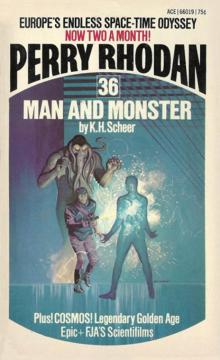 Man and Monster
Man and Monster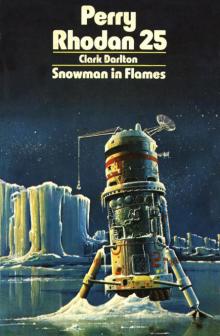 Snowman in Flames
Snowman in Flames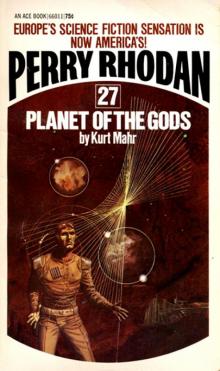 Planet of the Gods
Planet of the Gods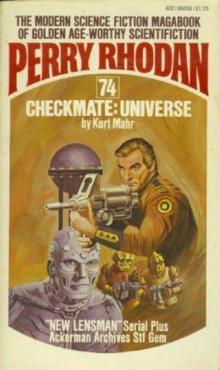 Checkmate Universe
Checkmate Universe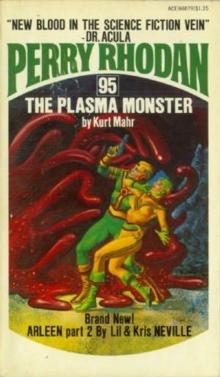 The Plasma Monster
The Plasma Monster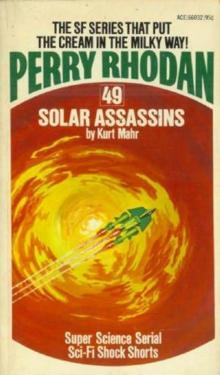 Solar Assassins
Solar Assassins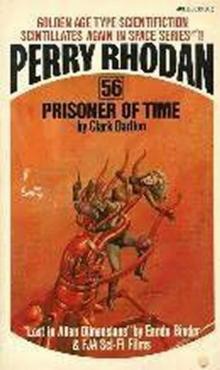 Prisoner of Time
Prisoner of Time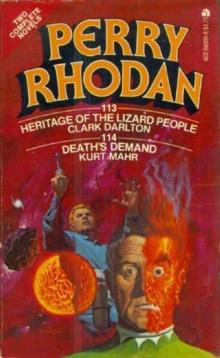 Death's Demand
Death's Demand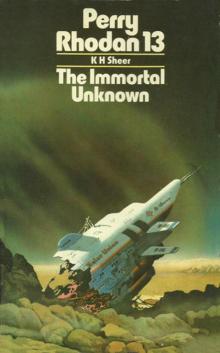 The Immortal Unknown
The Immortal Unknown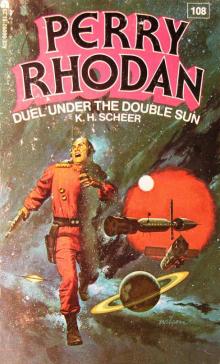 Duel Under the Double Sun
Duel Under the Double Sun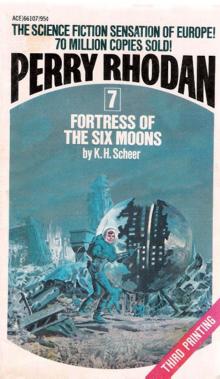 Fortress of the Six Moons
Fortress of the Six Moons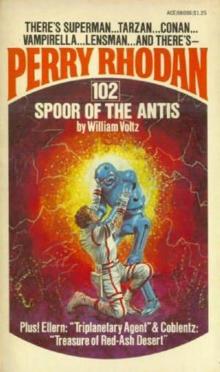 Spoor of the Antis
Spoor of the Antis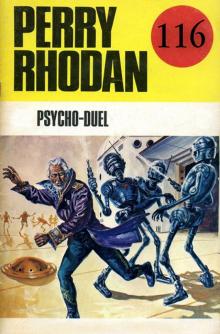 The Psycho-Duel
The Psycho-Duel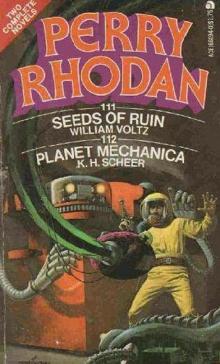 Planet Mechanica
Planet Mechanica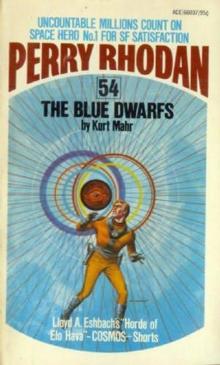 The Blue Dwarfs
The Blue Dwarfs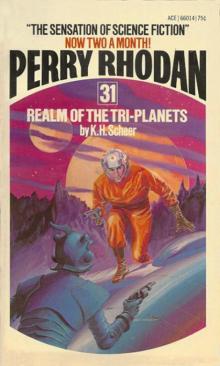 Realm of the Tri-Planets
Realm of the Tri-Planets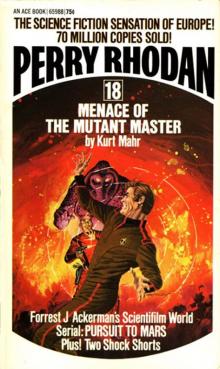 Menace of the Mutant Master
Menace of the Mutant Master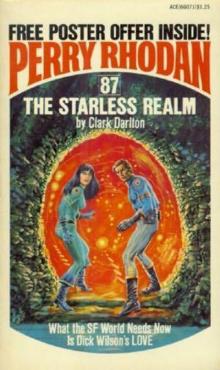 The Starless Realm
The Starless Realm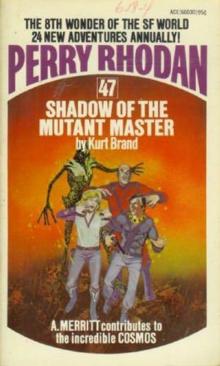 Shadow of the Mutant Master
Shadow of the Mutant Master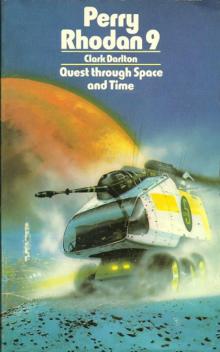 Quest Through Space And Time
Quest Through Space And Time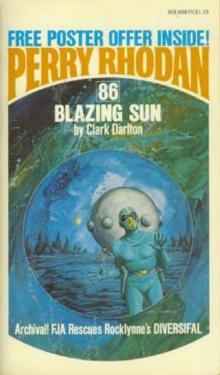 Blazing Sun
Blazing Sun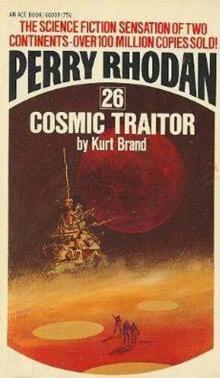 Cosmic Traitor
Cosmic Traitor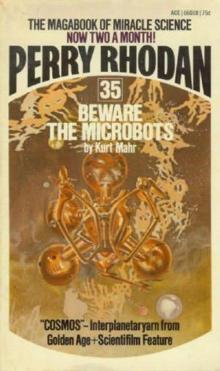 Beware the Microbots
Beware the Microbots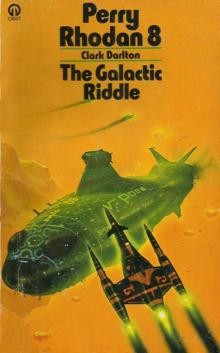 The Galactic Riddle
The Galactic Riddle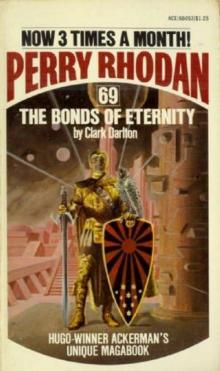 The Bonds of Eternity
The Bonds of Eternity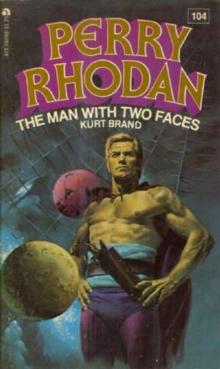 The Man With Two Faces
The Man With Two Faces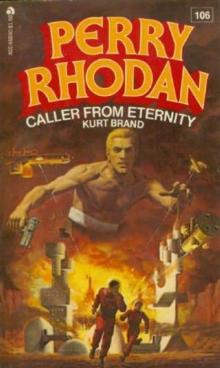 Caller from Eternity
Caller from Eternity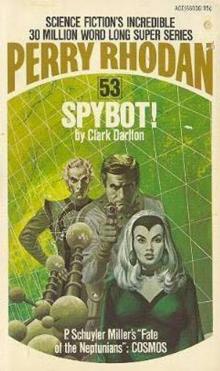 Spybot!
Spybot!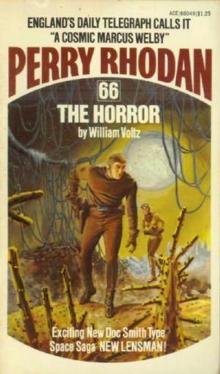 The Horror
The Horror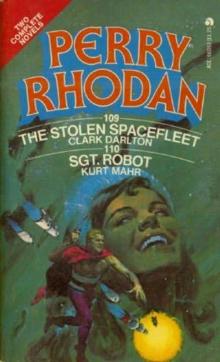 The Stolen Spacefleet
The Stolen Spacefleet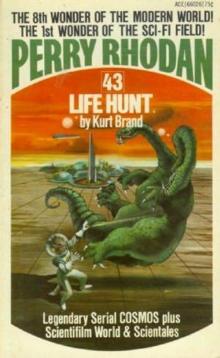 Life Hunt
Life Hunt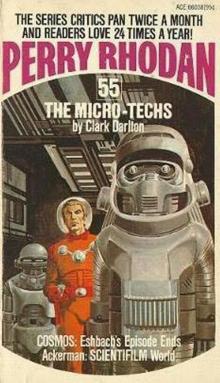 The Micro-Techs
The Micro-Techs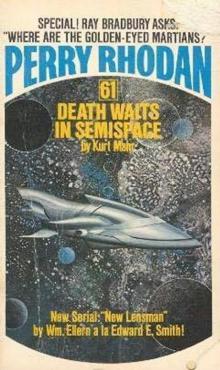 Death Waits in Semispace
Death Waits in Semispace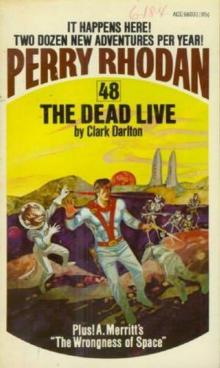 The Dead Live
The Dead Live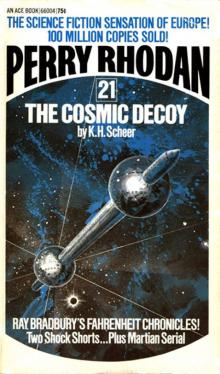 The Cosmic Decoy
The Cosmic Decoy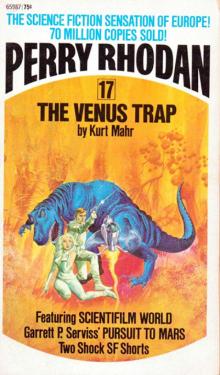 The Venus Trap
The Venus Trap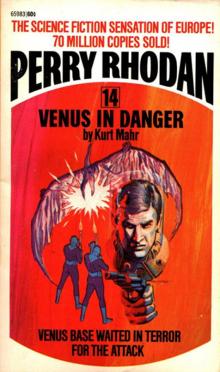 Venus in Danger
Venus in Danger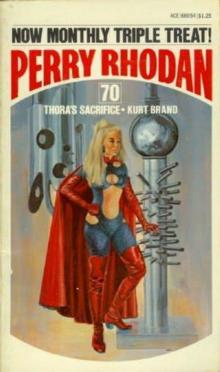 Thora's Sacrifice
Thora's Sacrifice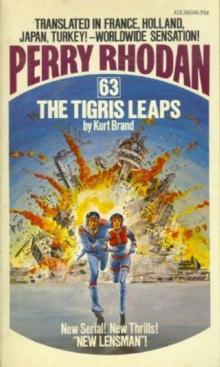 The Tigris Leaps
The Tigris Leaps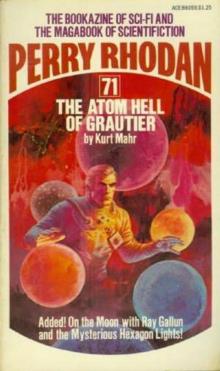 The Atom Hell of Grautier
The Atom Hell of Grautier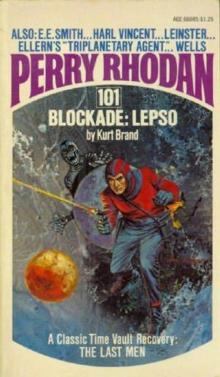 Blockade: Lepso
Blockade: Lepso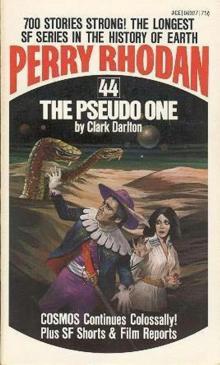 The Pseudo One
The Pseudo One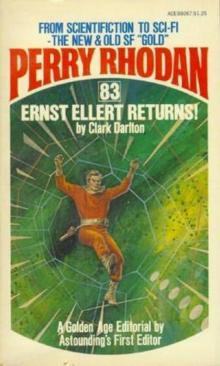 Ernst Ellert Returns
Ernst Ellert Returns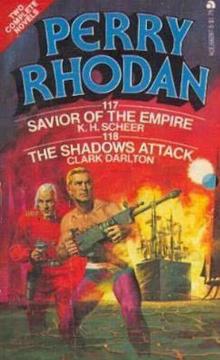 Savior Of The Empire
Savior Of The Empire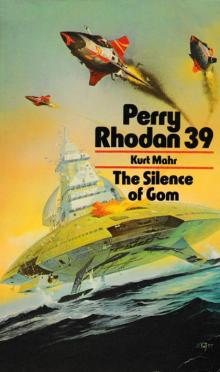 The Silence of Gom
The Silence of Gom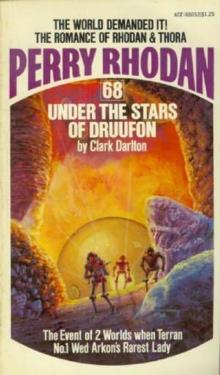 Under the Stars of Druufon
Under the Stars of Druufon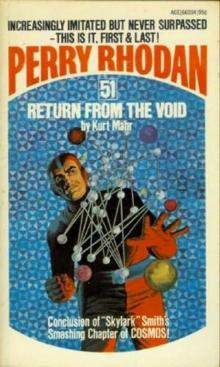 Return from The Void
Return from The Void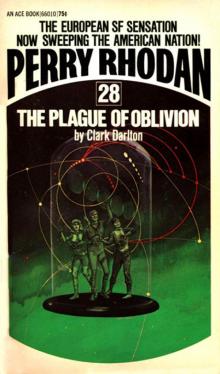 The Plague of Oblivion
The Plague of Oblivion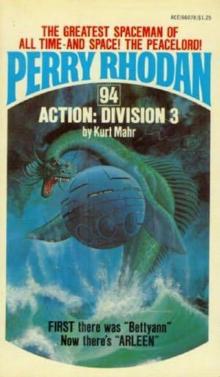 Action Division Three
Action Division Three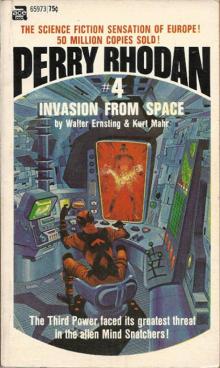 Invasion From Space
Invasion From Space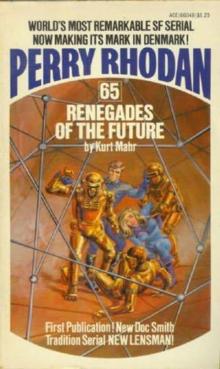 Renegades of the Future
Renegades of the Future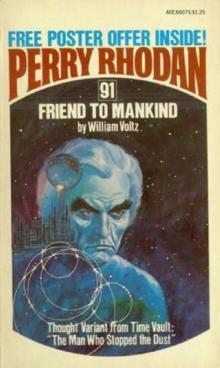 Friend to Mankind
Friend to Mankind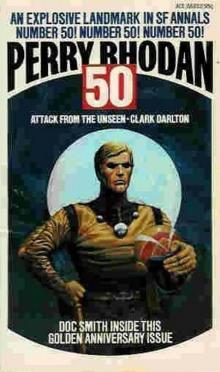 Attack from the Unseen
Attack from the Unseen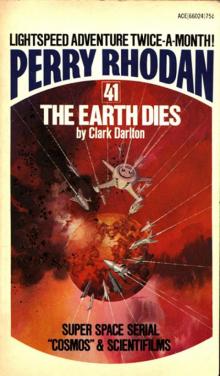 The Earth Dies
The Earth Dies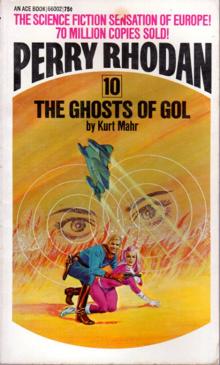 The Ghosts of Gol
The Ghosts of Gol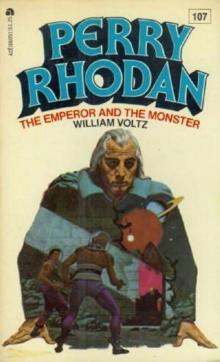 The Emperor and the Monster
The Emperor and the Monster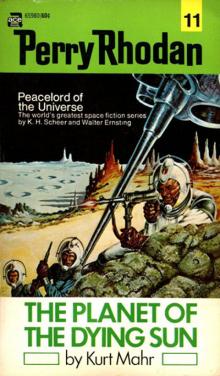 The Planet of the Dying Sun
The Planet of the Dying Sun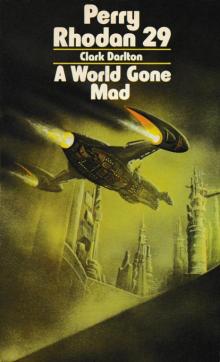 A World Gone Mad
A World Gone Mad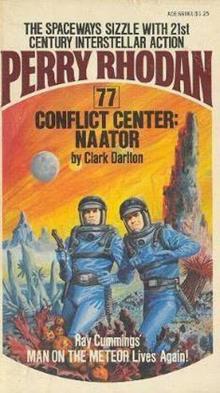 Conflict Center Naator
Conflict Center Naator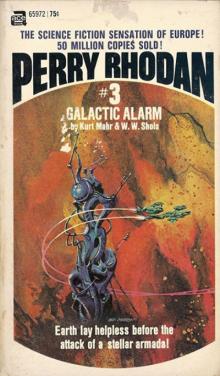 Galactic Alarm
Galactic Alarm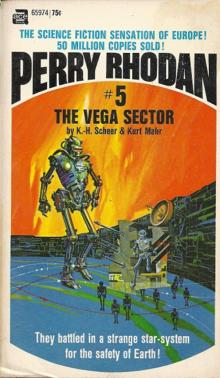 The Vega Sector
The Vega Sector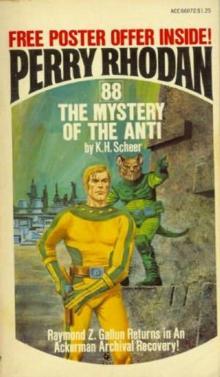 Mystery of the Anti
Mystery of the Anti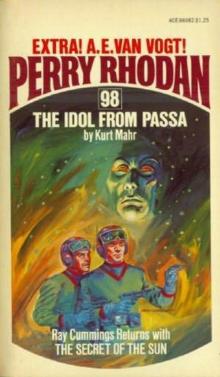 The Idol from Passa
The Idol from Passa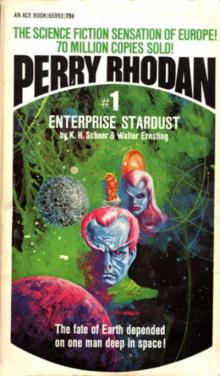 Enterprise Stardust
Enterprise Stardust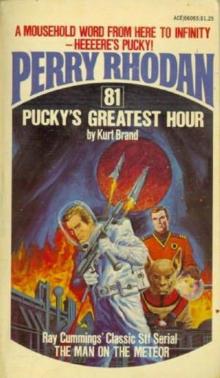 Pucky's Grestest Hour
Pucky's Grestest Hour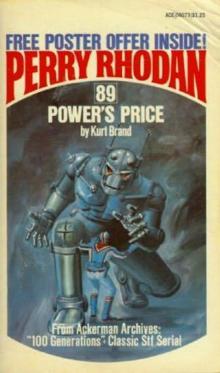 Power's Price
Power's Price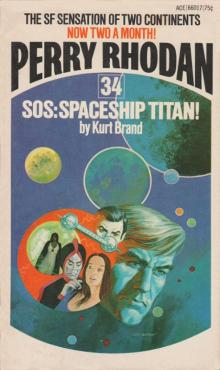 SOS Spaceship Titan
SOS Spaceship Titan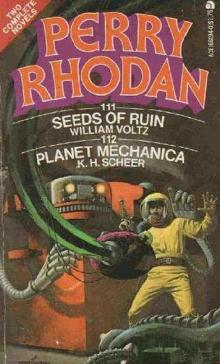 Seeds of Ruin
Seeds of Ruin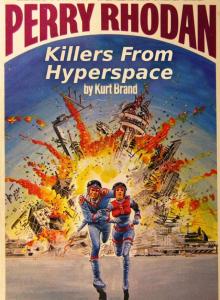 Killers From Hyperspace
Killers From Hyperspace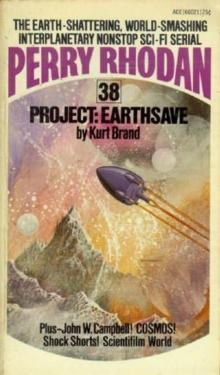 Project Earthsave
Project Earthsave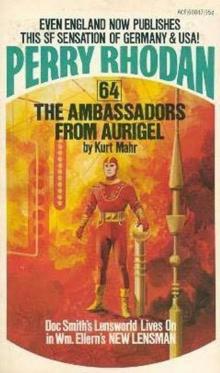 The Ambassadors from Aurigel
The Ambassadors from Aurigel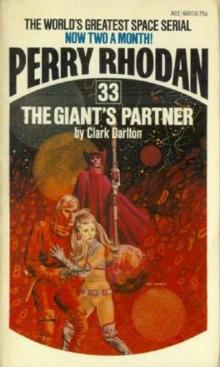 The Giant's Partner
The Giant's Partner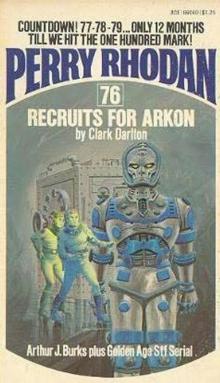 Recruits for Arkon
Recruits for Arkon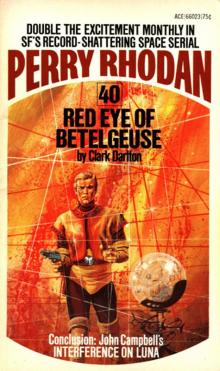 Red Eye of Betelguese
Red Eye of Betelguese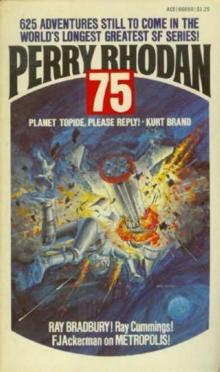 Planet Topide Please Reply
Planet Topide Please Reply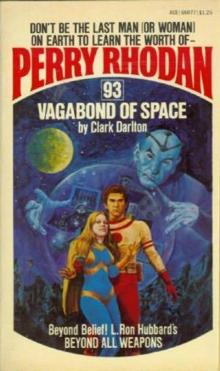 Vagabond of Space
Vagabond of Space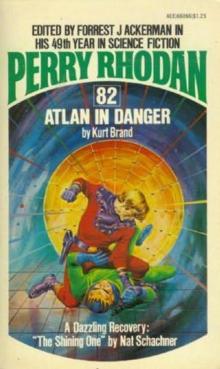 Atlan in Danger
Atlan in Danger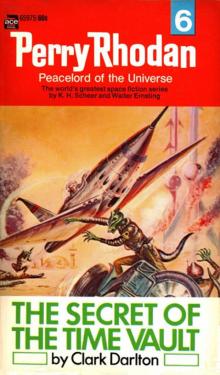 The Secret of the Time Vault
The Secret of the Time Vault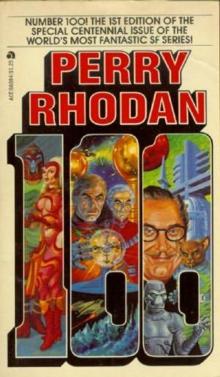 Desert of Death's Domain
Desert of Death's Domain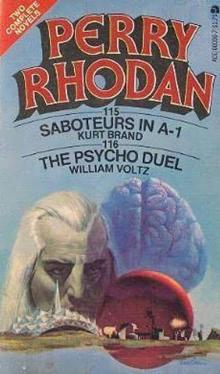 Saboteurs in A-1
Saboteurs in A-1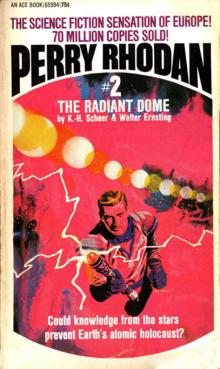 The Radiant Dome
The Radiant Dome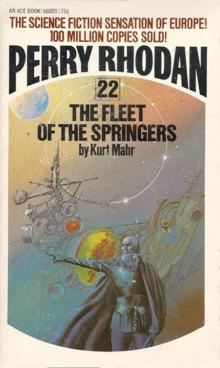 The Fleet of the Springers
The Fleet of the Springers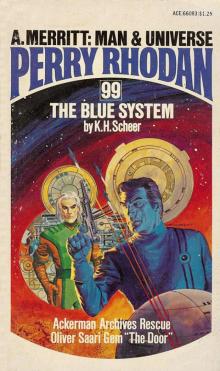 The Blue System
The Blue System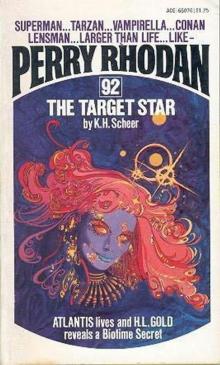 The Target Star
The Target Star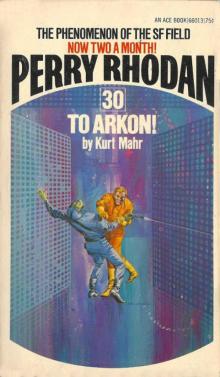 To Arkon!
To Arkon!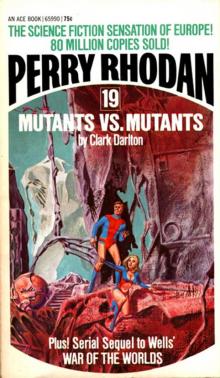 Mutants Vs Mutants
Mutants Vs Mutants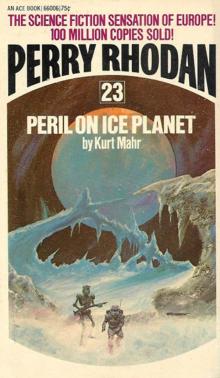 Peril on Ice Planet
Peril on Ice Planet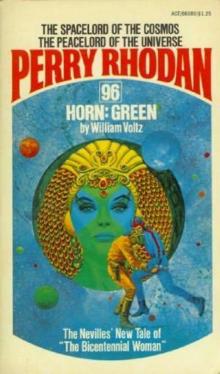 Horn: Green
Horn: Green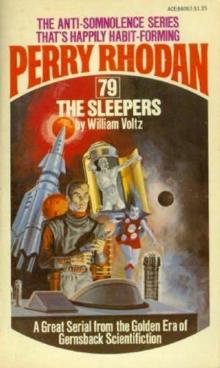 The Sleepers
The Sleepers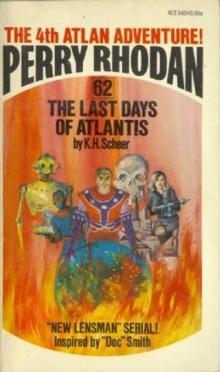 The Last Days of Atlantis
The Last Days of Atlantis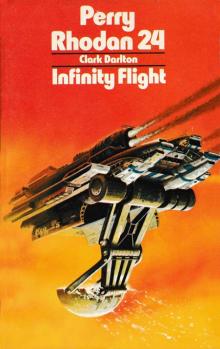 Infinity Flight
Infinity Flight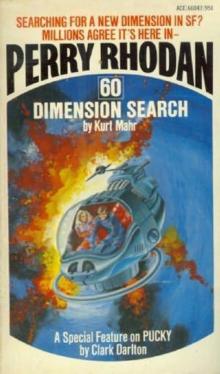 Dimension Search
Dimension Search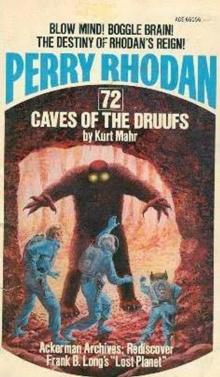 Caves of the Druufs
Caves of the Druufs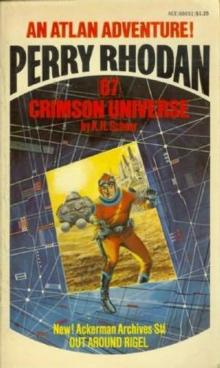 Crimson Universe
Crimson Universe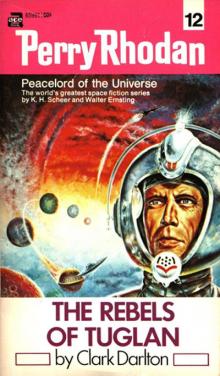 The Rebels of Tuglan
The Rebels of Tuglan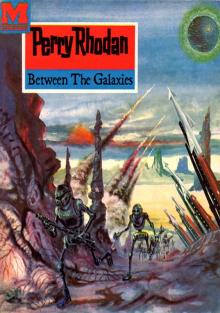 Between The Galaxies
Between The Galaxies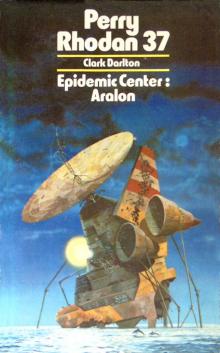 Epidemic Center Aralon
Epidemic Center Aralon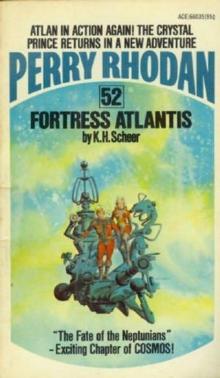 Fortress Atlantis
Fortress Atlantis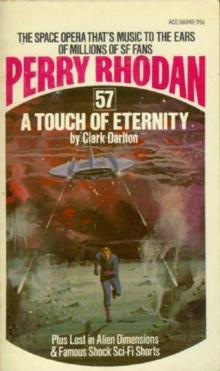 A Touch of Eternity
A Touch of Eternity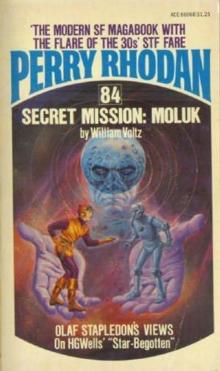 Secret Mission Moluk
Secret Mission Moluk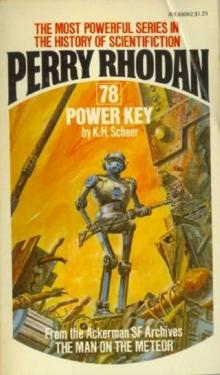 Power Key
Power Key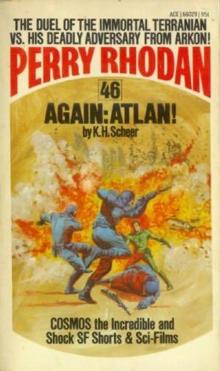 Again Atlan
Again Atlan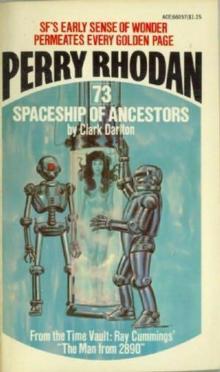 Spaceship of Ancestors
Spaceship of Ancestors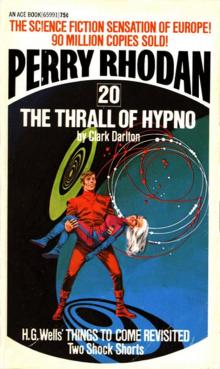 The Thrall of Hypno
The Thrall of Hypno